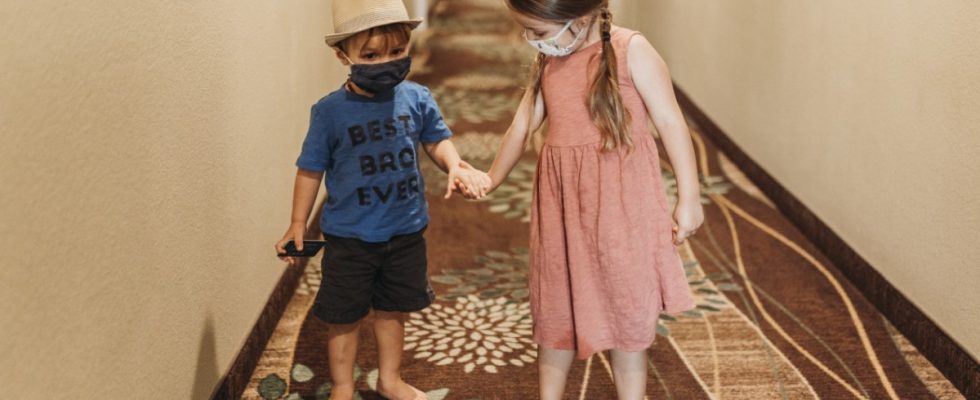For many families with young children, pandemic memories are both bittersweet and deep-seated. They often combine the feeling of pure happiness – and unbearable stress. And while it can be debated whether the beautiful aspects of the intensive family time gained involuntarily through lockdowns were purely a privilege of those better off, the question of how the small children themselves actually fared with it has so far been largely unanswered.
A large study from Canada published last week in the trade magazine Jama has now dedicated itself to exactly this topic: How did small children fare during the pandemic – and what effects did the extraordinary situation have on their cognitive and social skills? The results of the study are particularly interesting because the study deals with large data sets that were obtained before and during the pandemic.
Greater problem-solving skills and increased fine motor skills
The scientists used data from the ongoing Ontario Birth Study. For this purpose, data from pregnant women who came to the Mount Sinai Hospital in Toronto for antenatal care are recorded.
The children’s development was documented through surveys, but also the researchers’ own observations between 2018 and 2022. This resulted in a data set of more than 1,400 mother-child teams, which enabled the researchers to compare the behavior and development of two-year-olds and four-and-a-half-year-olds with the conditions before and during the pandemic.
The result: At the age of two, children examined during the pandemic had significantly higher problem-solving skills and increased fine motor skills – but lower social skills compared to two-year-olds before the pandemic. At the age of 4.5, children had a significantly higher vocabulary during the pandemic compared to the four and a half year olds examined before the pandemic. Their visual memory was also better, as was their general cognitive development, which was tested, for example, with games like Memory. However, there was no difference in social skills in this age group.
The authors present the reasons for this development for discussion. The obvious theory is that more time and attention in their nuclear families helped the children to increase their cognitive development. However, their life in the outside world was reduced, which is why the development of social skills could be weaker, at least in the youngest children. At the same time, the scientists themselves point out that the study participants they were able to recruit came from socioeconomically above-average backgrounds.
This means that the study cannot answer one question: Were positive lockdown experiences a privilege of those better off? Or could people who had to cope with the exceptional situation under more difficult economic conditions also benefit? A possible answer could be: If parents were able to collect sweet and special moments under pandemic conditions, these are now almost certainly in the hearts and abilities of their children.

